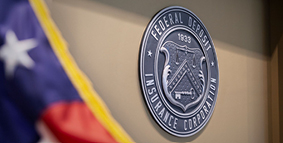Crypto Assets - Are they Insured?

Have you considered which of your assets are covered by FDIC Insurance?
At Waldo State Bank, we want to make sure you’re protected in today’s ever-changing financial world. We believe it’s crucial for you to know which of your assets are FDIC-insured.
The Federal Deposit Insurance Corporation (FDIC) recommends you take the time to review what is covered and what is not before making investments. Furthermore, we recommend seeking guidance from your financial advisor to learn more about specific investments you may hold. Remember, being informed about FDIC Insurance coverage is a vital step in securing your financial future.
Below are some key things to know about deposit insurance:
- It is essential to understand what is covered and the amount of coverage offered under deposit insurance. Typically, FDIC insurance covers deposits in banks and savings associations up to $250,000 per depositor, per insured bank, for each account ownership category.
- Certain investments such as stocks, bonds, mutual funds, annuities, and life insurance policies are not covered under FDIC insurance. It's important to research thoroughly to know what is and isn't covered.
- The FDIC provides a tool known as the Electronic Deposit Insurance Estimator (EDIE), which can help you calculate your insurance coverage. You can access EDIE through the FDIC website.
- FDIC insurance is typically paid when an insured bank fails, and the funds are insured up to the coverage limit. The FDIC will work to ensure that the failed bank's depositors receive their insured deposits as quickly as possible.
- If you have any additional questions regarding deposit insurance, you can contact the FDIC directly via their website or through their toll-free number, 1-877-ASK-FDIC (1-877-275-3342). You can also consult your financial advisor for guidance.
Being well-informed about deposit insurance can help you make informed investment decisions and secure your financial future.